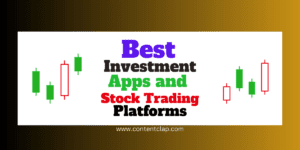Index Funds and Exchange-Traded Funds (ETFs)
Index Funds and Exchange-Traded Funds (ETFs) are two primary tools for passive investors, both designed to track the performance of major indices such as the S&P 500, NASDAQ-100, or the Dow Jones Industrial Average. But as we move into 2025, which option is better for your investment portfolio?
The financial markets in the United States have evolved significantly over the past decade, with passive investing emerging as a popular strategy.
This article compares index funds and ETFs in the context of the American market, helping you decide which fits your financial goals.
Index Funds vs. ETFs: A Quick Overview
- Index Funds:
Index funds are mutual funds that aim to replicate the performance of a stock market index. They are traded at the Net Asset Value (NAV), calculated at the end of each trading day.
- ETFs (Exchange-Traded Funds):
ETFs also track indices but are traded like individual stocks on exchanges. Their prices fluctuate throughout the trading day based on market dynamics.
Key Differences Between Index Funds and ETFs
Feature | Index Funds | ETFs |
Trading Mechanism | Bought/sold at day-end NAV | Traded on exchanges during market hours |
Expense Ratio | Slightly higher | Lower due to lower management costs |
Liquidity | Moderate | High due to intraday trading |
Minimum Investment | Fixed minimum amount | Flexible—one share minimum |
Tax Efficiency | Can trigger capital gains tax upon redemption | Generally more tax-efficient as trades occur on the exchange |
Advantages of Index Funds and ETFs in the U.S.
Index Funds
1. Ease of Use:
Ideal for beginner investors as they don’t require a brokerage account.
2. Systematic Investment Options:
Investors can opt for automatic contributions through retirement accounts like IRAs or 401(k)s.
3. Stable Pricing: Trades occur at the end-of-day NAV, making them less susceptible to intraday price volatility.
ETFs
1. Cost Efficiency:
ETFs typically have lower expense ratios compared to index funds.
2. Flexibility:
ETFs allow investors to buy and sell throughout the trading day, enabling intraday trading strategies.
3. Broad Accessibility: ETFs offer a wide range of options, including sector-specific or
thematic ETFs such as technology, healthcare, or ESG-focused funds.
Why 2025 Brings New Considerations
1. Rising Interest in Low-Cost Investing:
With growing awareness of the benefits of passive investing, cost-efficiency will remain a significant factor. ETFs, with their lower expense ratios, may have an edge.
2. Inflation and Market Volatility:
If 2025 brings higher inflation or volatile markets, ETFs can offer intraday trading flexibility, making them appealing to active passive investors.
3. Digital Accessibility:
Online platforms and apps like Robinhood, Fidelity, and Vanguard have made ETFs more accessible to everyday investors.
4. Tax Implications:
ETFs may offer tax advantages in the U.S. due to their structure, which allows investors to avoid realizing capital gains unless they sell their shares.
Who Should Choose Index Funds?
- Investors prioritize simplicity and long-term goals, such as retirement planning.
- Beginners without brokerage accounts or those investing through tax-advantaged accounts like 401(k)s.
- Those who prefer hands-off investing with systematic investment options.
Who Should Choose ETFs?
- Cost-conscious investors seeking lower expense ratios.
- Those with a brokerage account who value trading flexibility.
- Investors looking for niche exposure (e.g., technology or dividend-focused ETFs).
- Tax-savvy investors aiming for better control over taxable events.
Top Index Funds and ETFs in the U.S. for 2025
Conclusion
Both Index Funds and ETFs are excellent choices for building a diversified portfolio in 2025. The choice ultimately depends on your investment style, goals, and financial situation.
- If simplicity, automated investing, and long-term focus are your priorities, Index Funds are a solid choice.
- If cost-efficiency, flexibility, and access to niche markets appeal to you, ETFs may be the better option.
Passive investing continues to gain traction as investors recognize its potential for consistent long-term growth. Evaluate your needs and start investing wisely in 2025!
Must Read Articles
Disclaimer: The information for this written post has been taken from various sources. While we strive to provide accurate and reliable information, but cannot guarantee the accuracy or completeness of the information. Please use your discretion before making decisions or taking action based on that information. Therefore, any reliance you place on such information is strictly at your own risk.

















